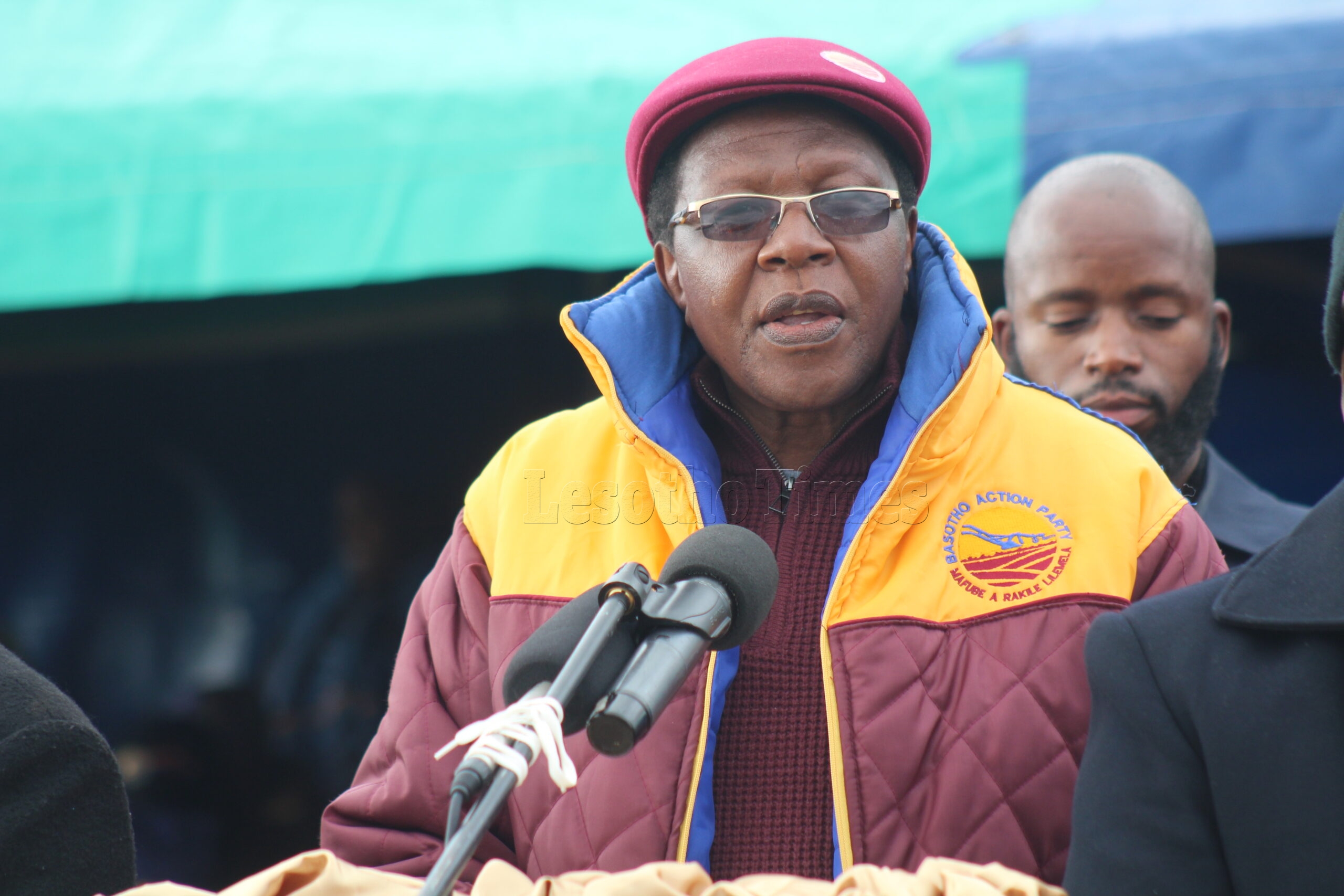. . . says only 18 ministers will serve in a BAP govt
’Marafaele Mohloboli
BASOTHO Action Party (BAP) leader, Nqosa Mahao, says he will reduce the size of the cabinet to just 18 ministers, if voted into power in the forthcoming elections due in October 2022.
Lesotho currently has 26 ministers and nine deputies.
Addressing thousands of BAP supporters at the party’s manifesto launch at Lithabaneng, Maseru this week, Professor Mahao said his government would also allocate only one vehicle per minister, and not two as is the case now.
Prof Mahao said a lean cabinet would be more effective. It would enable the country to save money and channel it towards development projects, he said.
“The current cabinet is too big. We need to reduce it and also allocate one car to every minister, not two as is the case now. This is just a waste,” Prof Mahao said to a rapturous response from the crowd.
The former Law and Justice minister said he would also ensure that government entities such as the Accountant General, Auditor General and the Directorate of Corruption and Economic Offences (DCEO) were freed from executive interference.
He said current efforts to root out corruption were not succeeding because these bodies were not as independent as they should be.
The DCEO for instance, has become notorious for losing cases, especially high-profile cases.
Former Finance minister ‘Mamphono Khaketla recently told the Lesotho Times that the DCEO was not dealing with cases professionally because it had been weaponised by whoever was in power to deal with political opponents.
Dr Khaketla made media headlines in 2016 after she was sensationally accused of attempting to solicit a M4 million bribe from a joint venture company shortlisted for a multi-million maloti vehicle fleet tender. High Court Judge Molefi Makara acquitted her last month after the DCEO failed to prosecute the case against her.
The police have also been accused of brutality against citizens. However, Commissioner Holomo Molibeli, has failed to punish the rogue officers who torture civilians.
Prof Mahao said his government would also ensure that the Police Complaints Authority functions independently so that ordinary citizens get justice against police brutality.
“Lesotho is known for deep rooted corruption and we shall eradicate it by making DCEO and other state bodies autonomous.
“Under our government, the Police Complaints Authority will be autonomous so that when the police are implicated in the commission of crimes, they should be taken to task and investigated thoroughly,” Prof Mahao said.
He said the country would only achieve political stability once the multi-sector reforms recommended by SADC in 2016 have been fully implemented.
A BAP government would also introduce a national service programme aimed at instilling patriotism among the youth.
It would also focus on providing vocational training so that Basotho can start creating jobs for themselves instead of relying on the government, he said.
“Lesotho’s education needs a total overhaul. We will introduce a system where 60 percent of all tertiary institutions will be mandated to offer training in science, technology, mathematics, commerce and health courses. This will help address the country’s employment needs. We are going to have vocational training schools in all the 10 districts.”
Prof Mahao said the BAP was a transformational political outfit, whose vision is based on the pillars of good and clean governance, upholding the rule of law and setting up an inclusive economy.
Teachers would be paid based on their qualifications. A BAP government would also increase student stipends because “what students are getting now is just an embarrassment,” he said.
He expressed concern over the widening economic gap between the rich and poor.
“The BAP has an obligation to work on addressing this and restore hope for those who have been excluded from benefitting from the country’s economy. Ours is the only party that is concerned about poor Basotho who have been sidelined from the economy. For this reason, we will set up a national security fund to cater for the welfare of everyone,” he said.
His government would also introduce low-income housing schemes and pensions for employees as provided for by the International Labour Organisation (ILO).
He said his government would also set up a state mining company whose mandate will be to buy shares in mines and ensure royalties are used to develop surrounding communities.

